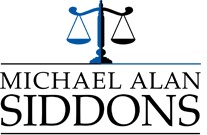Maybe you had an unexpected expense or perhaps you lost your job. Whatever the reason, you are now behind on your payments for your mortgage, car, credit cards, or a previous loan. While you might be trying your hardest to catch up, the companies you owe may be too quick to transfer your information to a collections agency. They are all too eager to work tirelessly to get your money. Though in 1977, the United States created the Fair Debt Collections Practices Act, severely limiting the conduct that those collection agencies can engage in as an attempt to collect on your debt.
This Act is very detailed and describes all the prohibited conduct, as well as the required conduct, of a collections agent. Some examples of what the act prohibits are listed below:
- Telephone calls outside of the hours of 8am and 9pm local time (a collection agency is prohibited to call you outside these hours and those times are for your time zone, not the company’s).
- Contacting a person who is known to have an attorney representing them (the attorney must be representing the person for the matter involving the debt).
- Contacting a third party without consent of the person (this does not include your attorney, attorney of credit issuer, or attorney of the collections agency).
- Continuing communication after receiving a written request to stop or a written request saying he or she refuses to pay the debt (the collector is allowed to let you know that by ending communication, you may miss out on certain remedies only a collections agency can provide).
- Harassment: an agency can not engage in conduct that is threatening, coercive, use profane language, or make repetitive calls with the intent of being annoying.
- Misrepresentations: an agency cannot provide falsified information to you knowingly in an attempt you get you to pay.
There are many other prohibited conducts listed in the actual statute, but these are a few that are most common.
The act also provides certain required conduct by a collections agency. This includes those requirements:
- A collections agency must identify themselves.
- Provide the name and address of the original creditor (the company that reached out to the debt collector after failing to receive payments).
- Notify the consumer of his or her right to dispute a debt (you may not realize that this is an option, and you would never know if they did not tell you).
- Provide a verification of the debt at issue (upon request, you can get the collections agency to verify the debt, so you know how much and who from).
Dealing with financial struggles can be difficult and constant nagging from a collections agency can exacerbate the situation. If you are facing collections calls, call me, Michael A. Siddons. As an experienced attorney specializing in bankruptcy, I can provide you with strategies to help you overcome your financial hardships. Call today: (610) 255-7500











